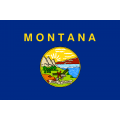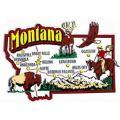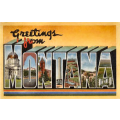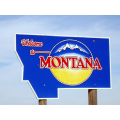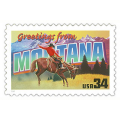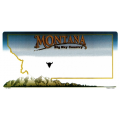Are you interested in pursuing a career in Montana’s nursing industry? You can explore your options below in each of the state’s major nursing pathways.
Certified nursing assistant
Montana
We've organized a comprehensive list of Montana nursing schools. Below you'll find information on specific nursing programs such as LPN certificates and ADN, BSN, and MSN degrees.
The master of science in nursing (MSN) is a highly advanced qualification for registered nurses (RNs) who wish to further their careers in specialized fields like nursing administration, nursing education, and family practice nursing. MSN students are trained to assume leadership roles in their respective healthcare fields. The MSN is also an entry-level graduate degree for those eventually pursuing doctorate-level nursing education.
The bachelor of science in nursing (BSN) degree is gaining prominence as healthcare employers place increasing importance on baccalaureate education. There are two categories of BSN offerings in Montana: prelicensure programs that prepare students for the NCLEX-RN exam, and RN-to-BSN programs that enable existing registered nurses (RNs) to earn a bachelor’s degree. Montana RNs earn a median income of $58,840, but BSN-educated nurses frequently receive top-quartile pay of $69,490 or more. Below we’ve identified several of the state’s most esteemed and innovative BSN programs.
There are two main types of associate’s degree programs available in Montana: licensed practical nursing (LPN) and registered nursing (RN). Both are prelicensure programs that prepare students to pass the relevant NCLEX examination. Students can graduate either program with just two years of full-time study, so the time from enrollment to employment is relatively short. Below we profile several of Montana’s associate’s degree programs in depth.
Salish Kootenai College
A licensed practical nurse (LPN) assumes a range of healthcare responsibilities. Critical daily tasks include collecting samples, cleaning and monitoring medical equipment, measuring and recording vital signs, dressing wounds, and gathering medical information from patients. Aspiring LPNs in Montana must complete a state-approved associate’s degree program, which typically requires two years of fulltime study, and successfully pass a national licensure exam. They are also required to renew their licenses every two years. The median income for Montana’s LPNs is about $37,500.
Nursing education entails significant up-front costs, including tuition and fees, books and supplies, room and board, and other living expenses. These costs vary depending upon several factors, including the length of one’s nursing program and the type of institution. To better quantify these expenses, we profile below the all-in costs of a few prominent Montana nursing schools.
Salish Kootenai College
Although public colleges and universities are often less expensive than private schools, many students prefer the personalized learning environment and intimate setting that a private college can offer. We profile below a few of the best private nursing schools in Montana.
Carroll College
Public colleges and universities, which are typically subsidized by the state government, are extremely attractive to students because of the lower tuition for state residents. Below we profile several of the best public nursing schools in Montana.
City College, Montana State University - Billings
Are you interested in pursuing a career in Montana’s nursing industry? You can explore your options below in each of the state’s major nursing pathways.
Certified nursing assistant

